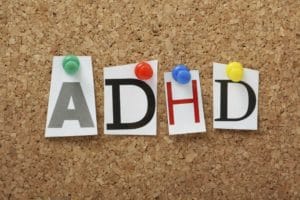A study recently published in the Annals of Allergy, Asthma and Immunology identifies a link between allergies, asthma and attention deficit hyperactivity disorder (ADHD) in children.
Researchers in the Netherlands found that ADHD in childhood was associated with allergic disease and impetigo, a common skin infection among children. By comparing data from 884 boys who had been diagnosed with ADHD (and prescribed medication) with 3,536 boys with no ADHD diagnosis, the researchers found that those who were diagnosed with ADHD were 40 percent more likely to have a history of asthma and 50 percent more likely to have required an antihistamine drug prescription. They were also 50 percent more likely than the other boys to have had impetigo (which is not associated with allergy).
A weaker link was also discovered between ADHD diagnosis and cow’s milk intolerance, plus any prescription of inhaled corticosteroids, steroid creams, antibacterials or antifungals.
While the study found an association, what’s not understood is why and how this association exists. The study authors stress that more research is required before drawing conclusions, and this study in no way recommends taking children off life-saving medications for asthma or other issues.
“This study lends support to the emerging evidence that childhood ADHD is associated with atopic [allergic] disease and impetigo,” write the authors. “Further interdisciplinary research is needed to understand the underlying mechanisms.”
A related case study involving a single 8-year-old girl was published in the same issue. The girl had a dry cough for seven months and had been prescribed various medicines, but it would not go away. It was found that her chronic cough had started shortly after being put on dextroamphetamine (Adderall) for ADHD.
After trying more medications and testing, doctors recommended that the girl be taken off Adderall, and return in four weeks. When she came back, her grandfather said all of her symptoms had disappeared within 48 hours of stopping her ADHD medication. Facial tics (repetitive eye blinking and face rubbing) which had shown up after her ADHD diagnosis also disappeared after discontinuing her Adderall regimen. Researchers concluded that her chronic cough was actually a tic being exacerbated by her ADHD medication. They stress the importance of knowing about this potential cause because traditional treatments for chronic cough will not help.
“When evaluating pediatric patients with chronic cough, allergists need to be aware of this potential complication of stimulant therapy,” the authors conclude.






